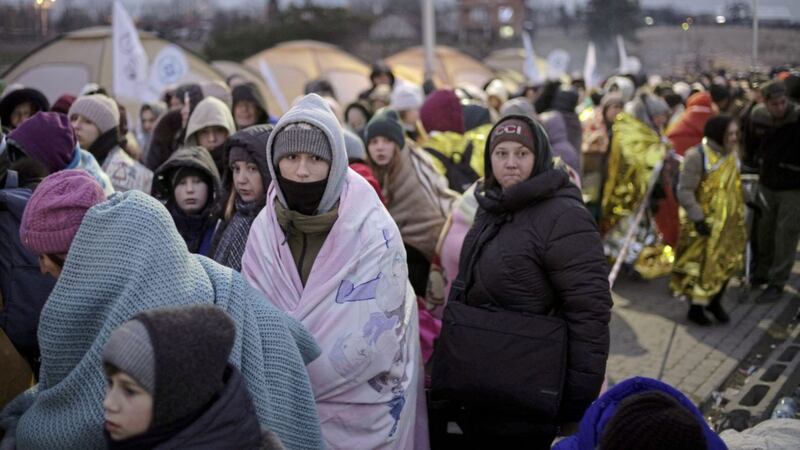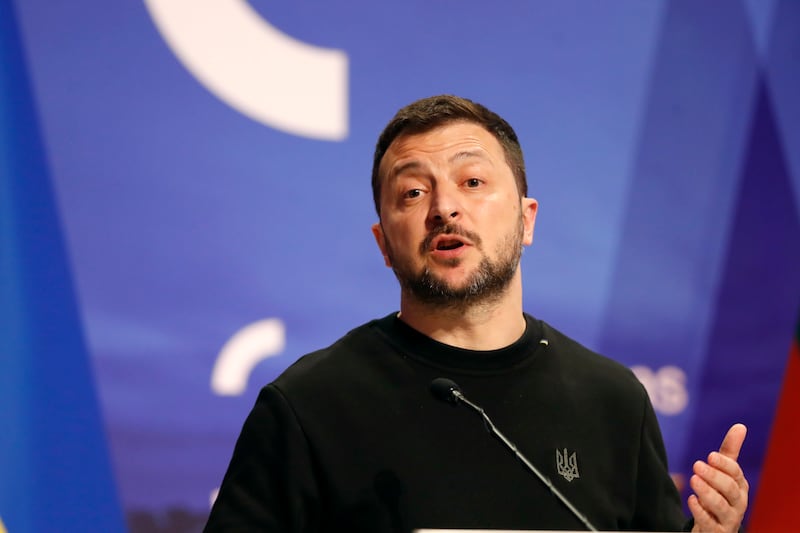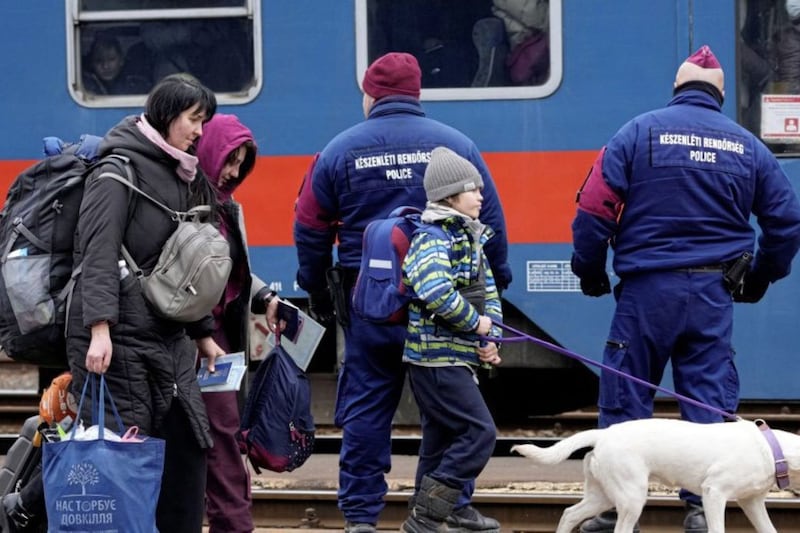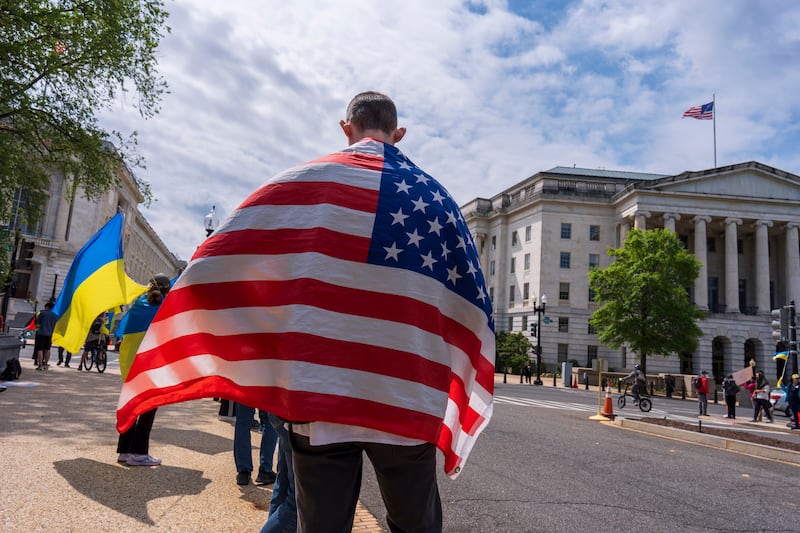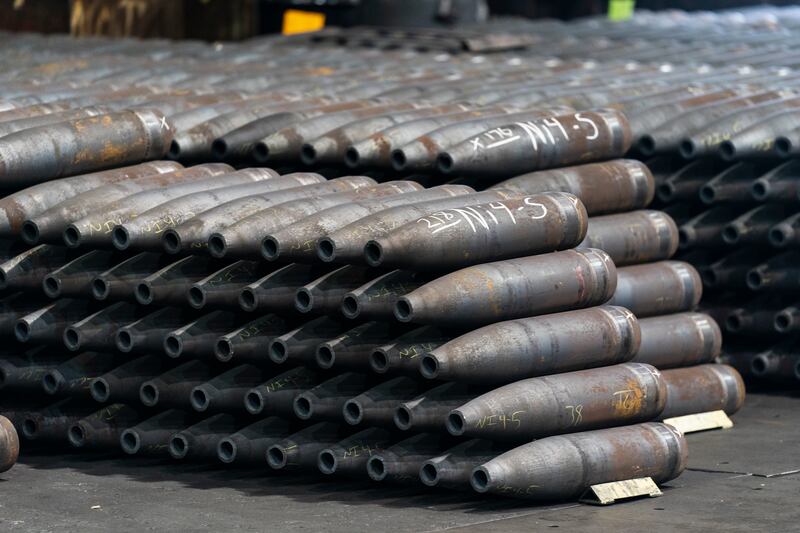This week, the number of refugees from Ukraine who have arrived in the Republic of Ireland exceeded 10,000.
In that same time frame, just over 6,100 visas had been issued by the British government to those fleeing the invasion of their country.
If there was any doubt over Brexit being about Britain taking back control of its borders, then the attitude and response of the British government in the face of the biggest displacement of people in Europe since the last world war surely puts it to rest.
The social media posts from Ukrainians desperate to qualify under the sponsorship scheme the British government is operating, whereby those who are opening their homes can only do so to “named” individuals, are both heartbreaking and galling. It is inhumane to put desperate women seeking safety for their children in a position where they are competing for shelter with friends and neighbours who have fled the same horrors.
Whilst this is going on, in a familiar Tory attempted sleight of hand, fingers were pointed at Ireland for putting the security of Britain at risk because it was giving shelter to people without first carrying out security checks. Britain said this could create a back door, via the Common Travel Area, for undesirables to get into Blighty. This is, of course, nonsense because the Common Travel Area applies to the rights of movement of the citizens of Britain and Ireland between the two states and not to third party nationals who would have to undergo the same checks as if they were coming from outside the CTA.
Taoiseach Michéal Martin, when asked about the issue in the British media, said: “Our primary impulse is to assist those fleeing war. This is something Ireland has never experienced on this scale but we believe we need to do it because we believe this is a battle between democracy and authoritarianism fundamentally.”
Ireland’s response has been guided by its International Protection legislation which gives expression to a 2001 EU Council Directive on minimum standards for the temporary protection of displaced persons fleeing war.
But it is more than that. Public and political support for the Ukrainian people has been unequivocal in the face of the brutality and suffering we have witnessed in the last number of weeks in our newspapers and on television.
Part of the Irish response is based on a collective national memory of invasion, denial of nationhood and attempts to wipe the culture and identity of a people off the map.
The taoiseach is wrong in some of what he is saying, though. This is something we have experienced on a huge scale. Being forced to flee from your home because of indiscriminate violence and targeted attacks on civilian populations is the lived experience of so many people on this island, including my own family.
Irish government ministers have said that, proportional to other EU states, the number of refugees in the Republic of Ireland fleeing the war in Ukraine could reach as high as 200,000.
Speaking on RTÉ radio, agriculture minister Charlie McConalogue said that all government agencies were working together to identify potential accommodation and to ensure that refugees who arrive are provided with shelter, healthcare and education.
Offers of accommodation from the public have been phenomenal and have included Tánaiste Leo Varadkar and his partner who have said they will make their spare room available. Fair play to him.
It is anticipated that vetting of offers of accommodation where a child or vulnerable adult is involved will begin this week. Under the terms of a deal agreed between government, the Red Cross and Garda, resources will be made available to complete the vetting process within seven days.
Across Europe, housing, social welfare, access to education, and in some cases free public transport and mobile phones have been made available to those fleeing Ukraine.
This has been hugely positive and it is how an international refugee protection system should work. It should not be contingent on whether people look European like us or whether they are Muslim or Black or Asian.
Islamophobia is rife in many European countries and only a couple of months ago we saw how a European member state treated Afghan and Iraqi refugees on the border of Poland and Belarus. These people were also fleeing terrible violence in their countries, but they were beaten back trying to cross the border and many died, waiting, in freezing forests.
Article 3 of the United Nations 1951 Refugee Convention holds that all member states "shall apply the provisions of this Convention to refugees without discrimination as to race, religion or country of origin." The wake of the Ukraine refugee crisis will be an opportunity for Europe to reflect and ensure that compassion and commitment to safeguarding human rights are at the heart of all its refugee protection programmes in future.
